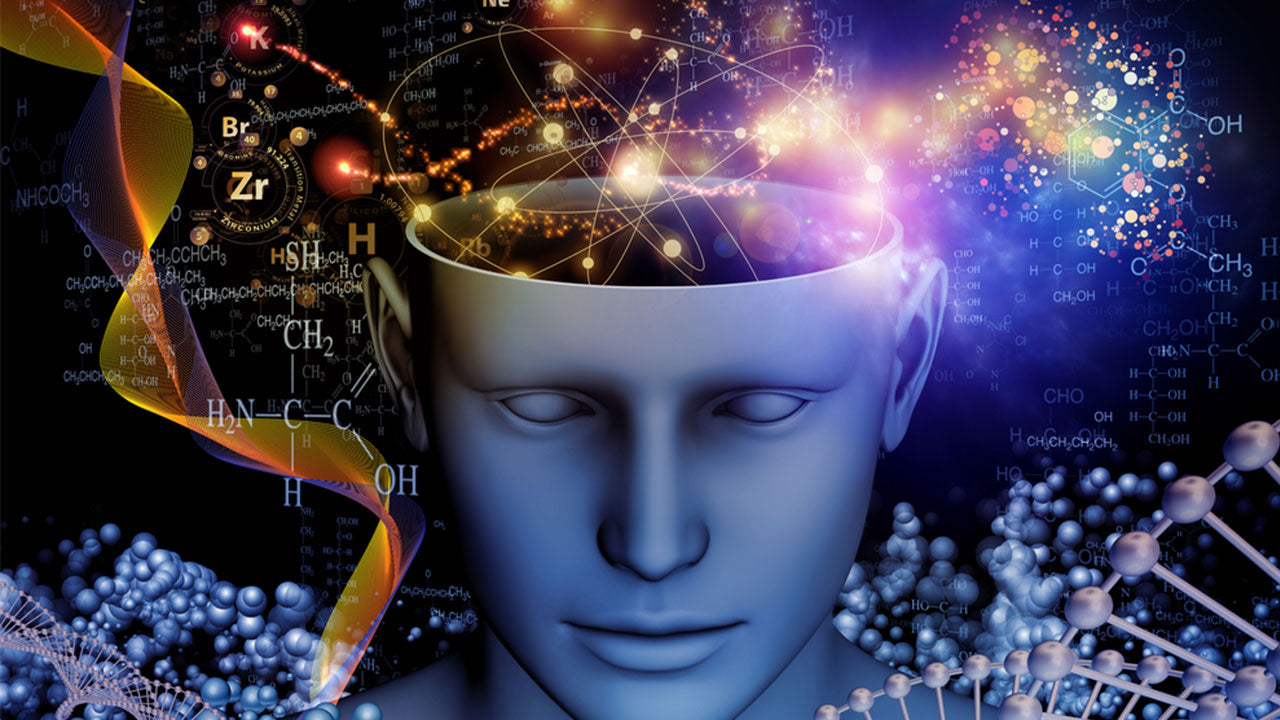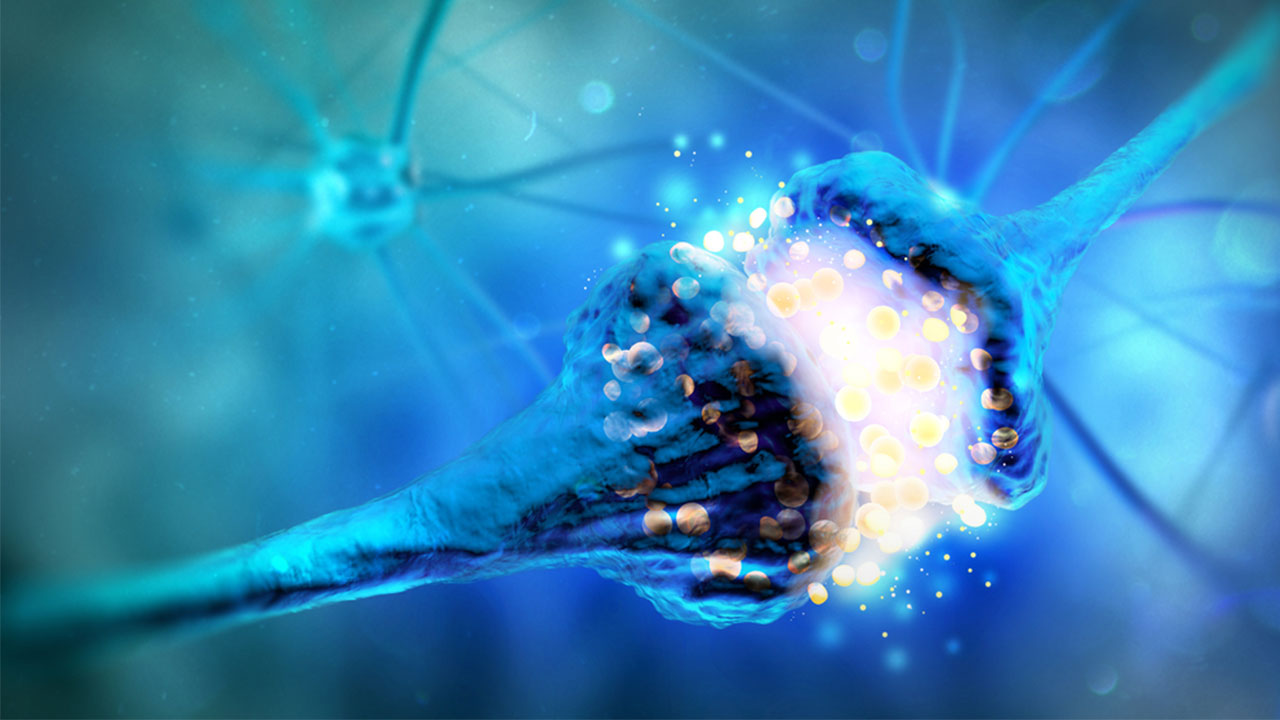Amino Acid Therapy for Depression: Can Amino Acids Help Beat This Scourge of Modern Life?
 By: by Amino Science
By: by Amino Science

Everyone can feel depressed at times. Bad weather, bad news, or just the blahs can make you feel down and diminish your desire to engage in fun and productive activities—or do just about anything at all. But when these feelings persist and are accompanied by loss of appetite, weight loss, social isolation, or suicidal thoughts, it’s very likely an imbalance in brain chemistry is part of the problem. Yet while there are many pharmaceuticals on the market designed to treat depression, many studies have found they’re not effective in a significant number of people. So in this article, we’re going to discuss how amino acid therapy for depression can help bring the brain back into balance and offer many depressed patients the chance for relief.
Serotonin’s Effect on the Brain
According to the National Institute of Mental Health (NIMH), approximately 17 million American adults experience at least one major depressive episode each year. Moreover, the Anxiety and Depression Association of America (ADAA) states that major depression is the leading cause of disability among people aged 15 to 44. This is a huge problem, and it’s one that’s often been blamed on low levels of the neurotransmitter serotonin.
This chemical messenger acts in the brain to regulate mood, social behavior, appetite, digestion, sleep, memory, and sexual desire and function. Serotonin was linked to major depressive disorder around 50 years ago, when it was observed that drugs that lowered levels of serotonin often caused depressive side effects.
Conversely, it was also observed that drugs like monoamine oxidase inhibitors (MAOIs), which enhance the activity of serotonin, appeared to increase well-being via antidepressant effects.
In the case of MAOIs, “monoamine” refers to a type of compound that includes neurotransmitters like serotonin, and “oxidase” refers to the enzyme that breaks down these compounds—so if you inhibit the enzyme, you increase the amount of monoamine neurotransmitters.
In addition, medications that act more specifically on serotonin and other neurotransmitters, such as selective serotonin reuptake inhibitors (SSRIs), were developed to diminish side effects and improve efficacy—the “reuptake inhibitor” part of SSRI refers to the fact that the drugs prevent the removal of serotonin, thereby increasing the amount available to act in the brain.
Serotonin Supplements
It’s also possible to increase serotonin levels in the brain by raising blood levels of the amino acid tryptophan. L-tryptophan—the form used by the body—is a precursor of serotonin, so an increase of tryptophan in the blood increases the amount of tryptophan in the brain, which in turn produces more serotonin.
The amino acid 5-hydroxytryptophan (5-HTP) is likewise a precursor of serotonin and has been shown to cross the blood-brain barrier more effectively than tryptophan.
Many people have reported that both L-tryptophan and 5-HTP are effective at alleviating depressive symptoms and improving mood. So it would appear, then, that the key to combating depression is maximizing the function of serotonin in the brain—whether with drugs or amino acids. But, of course, it isn’t that simple. In fact, there are many neurotransmitters that act in concert in the brain to regulate the complicated and nuanced mental state we call mood.
The Delicate Nature of Antidepressants
Other neurotransmitters that have been found to play a role in depression are norepinephrine and dopamine. And the relationship between serotonin and dopamine in the context of depression is complex. Many medications that target serotonin also indirectly affect dopamine receptors, so it’s possible that low dopamine levels may be responsible for depressive symptoms in some individuals.
Adderall, a drug prescribed for attention-deficit/hyperactivity disorder (ADHD), increases levels of serotonin, dopamine, and norepinephrine in the brain and has sometimes been used for the treatment of depression. Since serotonin, dopamine, and norepinephrine act as messengers in the brain’s reward and motivation pathways, it follows that they’re also responsible for regulation of emotions and feelings of pleasure.
Therefore, a new focus in antidepressant development has been on enhancing these neurotransmitters by inhibiting reuptake of all three. However, medications capable of performing this action also carry with them the concern that they may lead to misuse and addiction—a valid worry given the problems that have been observed with Adderall abuse.
A New Take on Depression
Recently, investigators have taken some novel approaches to thinking about depression. And part of these new approaches has involved questioning the so-called serotonin hypothesis of depression.
No longer is depression considered a state of mere sadness. On the contrary, anxiety, anger, frustration, and helplessness are seen as being potential components of depression as well. And both poor physical health and chronic pain have been recognized as contributing factors in the development of depression.
In fact, researchers in a 2008 study proposed that the proper balance of neurotransmitters in the brain—especially dopamine, norepinephrine, and serotonin—is crucial for developing positive learning associations and coping strategies. For example, the findings of their study suggest that:
- A deficiency of serotonin is related to anxiety, obsessions, and compulsions
- Reduced norepinephrine neurotransmission is associated with decreased alertness, low energy, and problems with attention, concentration, and cognitive ability
- Dysfunctional dopamine activity is implicated in problems involving motivation, pleasure, and reward
However, every person can vary in the degree to which each of these neurotransmitters is out of balance, so finding the right drug treatment or nutritional strategy can be a process of trial and error.

Amino Acid Therapy for Depression
As stated earlier, antidepressants aren’t effective in a large percentage of people. The reason for this is most likely multifactorial, as ingredients as diverse as genetics, hormones, brain structure, oxidative stress, and inflammation have also been implicated in the development of depression.
However, evidence suggests that natural methods of treating depression can often work where prescription antidepressants have failed, and some of the most effective natural treatments for depression involve the use of amino acid supplements.
Amino acids that have been identified as being effective for depression include:
- L-tryptophan
- 5-HTP
- L-tyrosine
- Phenylalanine
- Gamma-aminobutyric acid (GABA)
- L-theanine
As previously discussed, L-tryptophan and 5-HTP promote the synthesis of serotonin. However, L-tyrosine and phenylalanine stimulate the synthesis of norepinephrine and dopamine, while GABA is the major inhibitory neurotransmitter in the brain and has been implicated in both anxiety and major depression.
In addition, L-theanine is a precursor of GABA and helps balance the effects of glutamate—an excitatory neurotransmitter that plays a part in a number of central nervous system disorders, including depression.
For individuals interested in amino acid therapy for depression, it’s important to note that a balanced supply of all essential amino acids should create the perfect conditions for optimal neurotransmitter production. However, some proponents of individual amino acid therapy recommend taking amino acids separately because they compete for transport in the gastrointestinal tract and at the blood-brain barrier.
To ensure you begin with the strongest foundation possible, we recommend first starting with a balanced supply of all essential amino acids. Then, if additional support is needed, a more pharmacological approach can be applied by taking amino acids independently on an empty stomach to try to maximize both uptake and conversion to the desired neurotransmitter.
As with drug therapy, and as mentioned earlier, it should be understood that it may take some trial and error to work out the most effective amino acid regimen for each particular case of depression—though amino acids can start to have an effect on symptoms within days instead of weeks. Moreover, certain vitamins can assist the body in utilizing amino acids. These include:
- Vitamin C: This vitamin is required for the conversion of tryptophan and 5-HTP to serotonin as well as dopamine to norepinephrine.
- Folic acid: This B vitamin is required for the formation of serotonin, epinephrine, and dopamine. In addition, supplementation has been shown to be effective in treating cases of resistant depression.
- Vitamin B6: This particular B vitamin is required for the formation of several key neurotransmitters, including serotonin and norepinephrine, as well as the metabolism of amino acids and fatty acids.
- Vitamin B12: Among other roles, vitamin B12 assists in the synthesis of both serotonin and dopamine. Additionally, a 2003 study found that deficiency in this one vitamin can result in severe mental illness, including depression, anxiety, and psychosis.
- Vitamin D: This important vitamin, which is actually a hormone, is necessary for the regulation of several neurotransmitters, including serotonin, dopamine, and norepinephrine.
There are several books available on amino acid therapy for depression. In The Mood Cure, for example, author Julia Ross describes how certain amino acids can boost deficient brain chemicals.
She advises that amino acids for mood be used in conjunction with other important changes to diet and lifestyle, such as limiting sugar and caffeine and increasing consumption of green leafy vegetables, whole grains, and omega-3 fatty acids—all of which play a crucial role in supplying the nutrients necessary for optimal mental health.
Finally, it’s important to reiterate that balance is the key here, so aim for a duration and dosage that are sufficient to restore normal functioning and no more. Moreover, experts agree that combining nutritional supplements with drugs designed for the same purpose is a bad idea. So if your depression has been clinically diagnosed, your health care provider should work with you to find the optimal treatment.
And if you’re exploring nutritional approaches for improving mood and energy, you should stick with dietary strategies and natural supplements for depression. For as we continue to learn more about neurotransmitters and depression, it becomes increasingly clear that balance is the operative word when it comes to optimal brain function and mental health.

Up to 25% off Amino
Shop NowTAGS: benefits
Join the Community
Comments (0)
Most Craveable Recipes




 833-264-6620
833-264-6620



















